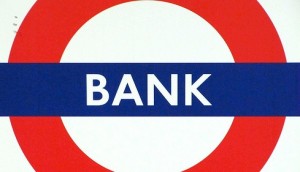Posted on 05 May 2011. Tags: banks, deutsche bank, federal district court, federal housing administration, fha insurance, german bank, government program, insurance, insured mortgages, mortgage insurance
 The Deutsche Bank was sued by the US Justice Department on Tuesday for the case of mortgage fraud. The Justice Department said the bank illegally acquired government insurance for below standard mortgages at the time when US housing is flourishing.
The Deutsche Bank was sued by the US Justice Department on Tuesday for the case of mortgage fraud. The Justice Department said the bank illegally acquired government insurance for below standard mortgages at the time when US housing is flourishing.
The complaint from the Justice Department said the German Deutsche Bank repeatedly lied to be a part of a government program, wherein banks are offered with mortgage insurance.
The bank profited from the insured mortgages; however, many American homeowners received default and eviction. As a result, the government has paid for insurance claims worth millions of dollars- with more expected to come in the future.
The suit was filed in New York federal district court on Tuesday. According to the complaint, the Mortgage IT obtained the German bank in January 2007 and insured about 39,000 home mortgages worth beyond $5 billion through the Federal Housing Administration until 2009.
It says the company hastily approved the mortgages, without determining if the borrowers can pay for them. Still, the Mortgage IT claimed that it had acted diligently and alleged that it was qualified to get FHA insurance. The suit said it has also failed to examine defaults as necessary.
As of February 2011, the government has paid $386 million for claims on 3,100 home mortgages. About 1,100 of those defaulted in just one year. There are still 7,500 loans presently in default. The government is expected to pay more once insurance claims have been filed or paid.
Posted in Finance
Posted on 27 February 2011. Tags: banks, bottom line, congressman, credit card companies, credit card interest, decent rate, interest rate, pre paid credit card, proposals, secured card
 The average new credit card interest rate is now 14.72%. Although, credit cards marketed to those with bad credit can top out at 59.9% interest.
The average new credit card interest rate is now 14.72%. Although, credit cards marketed to those with bad credit can top out at 59.9% interest.
Congress passed the CARD act to combat fees that credit card companies can charge, unfortunately capping interest rates was not part of that package. Banks may not retroactively raise customer rates, but that does not stop them from raising rates for new customers applying for a new card.
According to credit card expert Beverly Harzog, the banks are making initial interest rates high right now because they know they cannot raise them down the line. They need to protect their bottom line.
The past 2 years has seen record increases to APRs which have gone up 20% and then some. There are some proposals in congress right now that attempt to cap credit card interest, including one from Maurice Hinchey a NY Congressman. So far nothing has been passed into law.
Beverly Harzog recommends that those wanting to improve credit start with a secured card. This is essentially a pre-paid credit card, but will still get reported to the credit agencies, thus building a credit history. This is essential to people who want to have hopes of getting a decent rate in the future. Orchard Bank was mentioned by Harzog as having such a card.
Posted in Finance
Posted on 23 February 2011. Tags: 12 months, 9 months, bank of america, banks, citibank, consumers, credit card balance transfers, credit card companies, interest free balance transfer, limited time
 February is proving to be possibly one of the best months of 2011 for balance transfers. This is because Discover is offering two limited time promotions for the month of February. The first offer, which is a no balance transfer fee card, is 0% interest for 12 months on balance transfers and purchases. This is probably one of the best deal for consumers and many are taking advantage.
February is proving to be possibly one of the best months of 2011 for balance transfers. This is because Discover is offering two limited time promotions for the month of February. The first offer, which is a no balance transfer fee card, is 0% interest for 12 months on balance transfers and purchases. This is probably one of the best deal for consumers and many are taking advantage.
Discover is also offering a 24-month interest free balance transfer. This card, however, requires a 5% balance transfer fee. This may be the best option for consumers who will require more time to pay off their balances.
Consumers can get 0% interest for 18 months with a 3% balance transfer fee by using the Cit Platinum Select Card.
Many credit card companies, including Bank of America, are making competition fierce. However, Discover’s two limited time offers, which expire in February, are the main reason the balance transfer market is so strong for the month of February. If you were to take the offers from Discover and Citibank out of the equation, you would see that the overall market for balance transfers is surprisingly weak. This is because the average balance transfer deal is only 9 months long which doesn’t give consumers the confidence that they can pay their balances within that time frame.
The Chase Slate credit card offers great balance transfer terms, up to 18 months. However, consumers with less than perfect credit may only be offered 6 months to pay their balances. Those with perfect credit can expect the appealing 18 month terms.
Other banks such as Bank of America, Wells Fargo and U.S. Bank also offer balance transfer deals. However, these are usually unpopular due to the short terms, some lasting only 9 months to pay balance transfers. Transfer fees are also relatively high for these banks making these offers less appealing to consumers.
Posted in Finance
Posted on 22 November 2010. Tags: banks, borrowers, business firms, dodd, industry profits, loans, profit margins, ratios, unintended consequence, year 2012
 Declining profits, as well as tighter profit margins will force the banks to close about 5,000 branches nationwide by the year 2012 according to a research note made by bank analyst Meredith Whitney on Monday.
Declining profits, as well as tighter profit margins will force the banks to close about 5,000 branches nationwide by the year 2012 according to a research note made by bank analyst Meredith Whitney on Monday.
Whitney Meredith, CEO of Meredith Whitney Advisory Group LLC, informed that the decreased desire of consumers and corporate firms to borrow, along with the new bank regulations, have permanently changed the key source of industry profits.
As a result, banks might be pushed to close some of their branches. There were about 83,320 US commercial bank branches recorded at the end of last year.
Average loan-to deposit ratios of banks have significantly dropped to 78 percent, which is a 16-year low according to Whitney. This is already a sign that both consumers and business firms have dropped their desire for borrowing.
Banks would be unable to earn money from the interests they charge to borrowers if there are fewer new loans. Also, they would be unable to pay out for the deposits.
In addition, Whitney said that the Dodd-Frank Act will limit fee income, which has accounted for about 44 percent of banks total net revenues.
According to Whitney, they believe that the most regrettable and unintended consequence of the hastily written regulatory reform will be the unavoidable ‘de-banking’ of the financial system in the United States. Whitney projects 41 million households in U.S will not have access to banking services, which will be an increase from 30 million households in 2009.
Posted in Finance
Posted on 09 October 2010. Tags: ackerman, agreement states, assets, banks, basel iii, chief executive, finance industry, financial shocks, global economy, institute of international finance, liquidity, regulators, risk, three times, timetable, top quality

International bankers warn that forcing several financial establishments to reach up with the new capital requirements too fast could
greatly hurt the economies around the world.
As a result of the Basel III agreement that 27 countries have settled last month, individual countries might push their banks to meet with the new capital and liquidity standards before the deadline on year 2019.
According to the chief executive of Deutsche Bank, Josef Ackerman, there really is a great concern when national governments accelerate the phasing in process on the finance industry.
Ackerman, the chairman of the Institute of International Finance, which is holding its yearly meeting in Washington this weekend, warns along with other bankers that global economy is still fragile. Forcing the capital standards too quickly could already throttle the economy even before it has recovered.
The Basal III agreement states that banks should get top-quality capital equivalent to a total of 7-percent of their risk-bearing assets. That is three times more than the current standards so they can better endure financial shocks and downturns on the economy.
They have until 2015 to meet the minimum core Tier capital requirement; that is, at least 4.5 percent of assets. By 2019, they should have additional 2.5 percent, which is called the capital conservation buffer.
Even the regulators who attended the event treated the idea that the timetable would be moved up as less important, thinking that the new requirements will not impact the economies around the world negatively.
Posted in Finance
 The Deutsche Bank was sued by the US Justice Department on Tuesday for the case of mortgage fraud. The Justice Department said the bank illegally acquired government insurance for below standard mortgages at the time when US housing is flourishing.
The Deutsche Bank was sued by the US Justice Department on Tuesday for the case of mortgage fraud. The Justice Department said the bank illegally acquired government insurance for below standard mortgages at the time when US housing is flourishing.
 The average new credit card interest rate is now 14.72%. Although, credit cards marketed to those with bad credit can top out at 59.9% interest.
The average new credit card interest rate is now 14.72%. Although, credit cards marketed to those with bad credit can top out at 59.9% interest. February is proving to be possibly one of the best months of 2011 for balance transfers. This is because Discover is offering two limited time promotions for the month of February. The first offer, which is a no balance transfer fee card, is 0% interest for 12 months on balance transfers and purchases. This is probably one of the best deal for consumers and many are taking advantage.
February is proving to be possibly one of the best months of 2011 for balance transfers. This is because Discover is offering two limited time promotions for the month of February. The first offer, which is a no balance transfer fee card, is 0% interest for 12 months on balance transfers and purchases. This is probably one of the best deal for consumers and many are taking advantage. Declining profits, as well as tighter profit margins will force the banks to close about 5,000 branches nationwide by the year 2012 according to a research note made by bank analyst Meredith Whitney on Monday.
Declining profits, as well as tighter profit margins will force the banks to close about 5,000 branches nationwide by the year 2012 according to a research note made by bank analyst Meredith Whitney on Monday.
